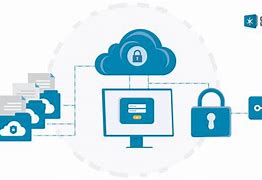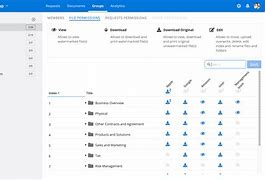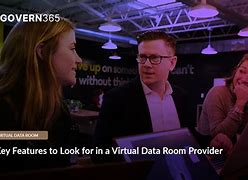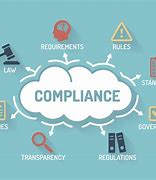
- Data Security Simplified: Why Virtual Data Rooms Are Essential
- What is a Virtual Data Room?
- Understanding the Basics
- Key attributes of a VDR
- benefits of Using a VDR
- The Importance of Data Security in Today's World
- Data Breaches: A Growing Threat
- The Impact of Data Loss
- Protecting Your Sensitive Information
- Why Virtual Data Rooms Are Essential for Data Security
- Choosing the Right Virtual Data Room
- Real-World Applications of Virtual Data Rooms
- Conclusion: Embracing the Future of Data Security with Virtual Data Rooms

In today’s digital landscape, data is the lifeblood of businesses, powering critical operations and driving growth. But as we become increasingly reliant on data, protecting it from unauthorized access and malicious threats becomes paramount. Data security is no longer a niche concern; it’s a core pillar of success. This is where Virtual Data Rooms (VDRs) step in, offering a robust and secure solution to safeguard your most valuable assets.
Imagine a secure, virtual vault, accessible only to authorized personnel, where you can store and share sensitive data with absolute confidence. VDRs are essentially cloud-based platforms that create secure environments for storing, sharing, and managing sensitive documents. Whether you’re conducting due diligence during a merger or acquisition, collaborating on intellectual property, or simply needing a centralized repository for crucial data, a VDR provides a powerful and scalable solution.
So, why are VDRs so essential for ensuring data security? Let’s break down the key benefits:
- Unparalleled Data Security: VDRs offer a range of security features, including robust access controls, multi-factor authentication, and encryption at rest & in transit, ensuring that only authorized individuals can access the data. No need to worry about hackers, malware, or accidental data breaches. Your information remains protected under lock & key.
- Streamlined Collaboration: VDRs facilitate efficient and secure collaboration with clients, partners, and investors, enabling seamless document sharing and communication without compromising security. Imagine the convenience of managing all your critical data in a single, centralized platform, where you can track activity, control permissions, and ensure data integrity throughout the entire process.
- Regulatory Compliance: As regulations like GDPR and HIPAA become more stringent, ensuring data privacy and security is no longer a choice, but a necessity. VDRs help businesses meet compliance requirements, offering audit trails and other features that demonstrate compliance with industry standards and best practices.
By implementing VDRs, businesses gain a significant advantage, bolstering their data security posture and ensuring regulatory compliance, while simultaneously optimizing collaboration and productivity. So, are you ready to step up your data security game? It’s time to discover the power of Virtual Data Rooms.
Data Security Simplified: Why Virtual Data Rooms Are Essential
In today’s digital landscape, safeguarding sensitive information is paramount. Data breaches are becoming increasingly common, posing significant risks to businesses, individuals, and even entire industries. With the rapid evolution of technology, the need for robust data security solutions has never been greater. This is where virtual data rooms (VDRs) come into play.
What is a Virtual Data Room?
A virtual data room is a secure online platform designed to share and manage sensitive documents, files, and information. Unlike traditional physical data rooms, VDRs offer a centralized, cloud-based repository with advanced security attributes, making them an essential tool for organizations seeking to protect their valuable data.
Understanding the Basics
Imagine a secure, online vault where you can store your most confidential information. This is essentially what a VDR offers. It’s a virtual space where authorized users can access, view, and collaborate on sensitive documents, all while maintaining the highest level of security and control.
Key attributes of a VDR
VDRs offer a wide array of attributes to enhance data security and streamline document sharing processes. Some of the key attributes include:
- Secure Access Control: VDRs enforce granular access controls, allowing administrators to determine who can view, download, edit, or print specific documents. This ensures that only authorized personnel have access to sensitive information.
- Advanced Encryption and Security Measures: Data is encrypted both in transit and at rest using industry-leading encryption algorithms. This ensures that even if unauthorized individuals gain access to the data, they cannot decrypt and read its texts.
- Audit Trails and Activity Logs: VDRs maintain detailed audit trails that track every action taken within the platform, including user access, document downloads, and modifications. These logs offer valuable insights into data application and help to determine potential security breaches.
- Watermarking and Access Restrictions: VDRs often offer attributes such as watermarking and access restrictions, which prevent unauthorized copying or distribution of sensitive documents.
benefits of Using a VDR
Beyond their enhanced security attributes, VDRs offer several benefits that can streamline business operations and enhance collaboration.
- Centralized Information Repository: VDRs offer a centralized location for storing all sensitive documents, eliminating the need for physical file cabinets and reducing the risk of document misplacement or loss.
- Improved Collaboration and Efficiency: VDRs facilitate seamless collaboration among authorized users, enabling them to share documents, track progress, and communicate effectively, regardless of their location.
- Enhanced Version Control: VDRs automatically track document versions, ensuring that all users are working with the most up-to-date information. This eliminates confusion and ensures consistency in data.
- Streamlined Due Diligence Processes: VDRs are particularly useful during due diligence processes, mergers and acquisitions, and legal proceedings, enabling secure and efficient information sharing between parties.
The Importance of Data Security in Today's World
In the modern digital age, data security has become a critical concern for businesses and individuals alike. The increasing reliance on technology and the constant flow of sensitive information through various online channels have created a landscape ripe for cyberattacks and data breaches.
Data Breaches: A Growing Threat
Data breaches are on the rise, fueled by sophisticated hacking techniques, phishing scams, and malware attacks. Organizations of all sizes, from small businesses to large corporations, are susceptible to these threats, and the consequences can be severe.
The Impact of Data Loss
The impact of data loss can be devastating, leading to:
- Financial Losses: Data breaches can outcome in significant financial losses due to stolen funds, fraud, and legal expenses.
- Reputational Damage: A data breach can severely damage an organization’s reputation, leading to loss of customer trust, diminished brand value, and decreased industry share.
- Compliance Violations: Organizations that fail to adequately protect sensitive data may face hefty fines and penalties imposed by regulatory bodies.
- Operational Disruptions: Data breaches can disrupt business operations, leading to downtime, decreased productivity, and delays in critical processes.
Protecting Your Sensitive Information
In light of these growing threats, it is crucial to implement robust data security measures to protect sensitive information. This includes:
- Strong Passwords and Multi-Factor Authentication: Encourage the use of strong passwords and implement multi-factor authentication to prevent unauthorized access to accounts.
- Employee Training and Awareness: Educate employees about data security optimal practices, such as determineing phishing attempts, recognizing malware, and reporting suspicious activity.
- Data Encryption: Encrypt sensitive data both in transit and at rest to prevent unauthorized access even if the data is intercepted.
- Regular Security Audits and Updates: Conduct regular security audits and update software and systems to patch vulnerabilities and stay ahead of emerging threats.
Why Virtual Data Rooms Are Essential for Data Security
Virtual data rooms offer a thorough solution for protecting sensitive information, providing a secure and controlled environment for sharing and managing critical documents.
- Secure Access Control: VDRs allow administrators to restrict access to specific users and groups, ensuring that only authorized personnel can view, download, or edit sensitive data. This granular control prevents unauthorized access and data breaches.
- Advanced Encryption and Security Measures: VDRs utilize industry-leading encryption algorithms to encrypt data both in transit and at rest. This ensures that even if the data is intercepted, it remains inaccessible to unauthorized individuals.
- Audit Trails and Activity Logs: VDRs maintain detailed audit trails, tracking every action taken within the platform. This offers a thorough record of user activity, enabling administrators to determine potential security threats and investigate unauthorized access attempts.
Choosing the Right Virtual Data Room
With numerous VDR offerrs available, choosing the right solution for your organization can be challenging. Here are some key considerations:
Key Considerations When selecting a VDR:
- Security attributes: Prioritize VDRs with robust security attributes, such as multi-factor authentication, granular access controls, and end-to-end encryption.
- Compliance and Regulations: Ensure that the chosen VDR meets industry-specific compliance requirements, such as HIPAA for healthcare or GDPR for European data.
- Ease of Use and User Interface: select a VDR with an intuitive interface that is easy to navigate and understand, allowing users to quickly access and manage documents.
- Pricing and Support Options: Consider the pricing model and support options offered by the VDR offerr, ensuring that they align with your budget and business needs.
attributes to Look for in a Secure VDR:
- Dynamic Watermarking: Watermarking ensures that all documents are tagged with unique identifiers, making it easy to track their distribution and prevent unauthorized copying.
- Access Restrictions: VDRs can limit user access to specific documents or sections, preventing unauthorized individuals from viewing sensitive information.
- Document Version Control: VDRs track all document versions, ensuring that users are always working with the most up-to-date information and eliminating the risk of miscommunication.
- Two-Factor Authentication: Two-factor authentication adds an extra layer of security by requiring users to offer two forms of identification, such as a password and a code sent to their mobile device.
Pricing and Support Options:
VDRs offer varied pricing models, such as paid access-based plans or per-project pricing. Consider the attributes included in each pricing tier and compare options to find the optimal value for your needs. Ensure that the VDR offerr offers reliable customer support to assist with any technical issues or querys.
Real-World Applications of Virtual Data Rooms
Virtual data rooms have numerous real-world applications across various industries, including:
Due Diligence and Mergers & Acquisitions:
VDRs are widely used during due diligence processes for mergers and acquisitions (M&A) transactions. They offer a secure platform for sharing confidential information, such as financial statements, contracts, and intellectual property documents, between potential buyers and sellers.
Legal and Regulatory Compliance:
VDRs are essential for organizations subject to strict regulatory compliance requirements, such as healthcare, finance, and legal industries. They ensure secure storage and access to sensitive data, enabling organizations to meet regulatory requirements and avoid penalties.
Intellectual Property Management:
VDRs offer a secure and controlled environment for managing intellectual property assets, such as patents, trademarks, and copyrights. They prevent unauthorized access to sensitive information and facilitate secure collaboration among authorized personnel.
Conclusion: Embracing the Future of Data Security with Virtual Data Rooms
Virtual data rooms are transforming the way organizations manage and protect sensitive information. Their robust security attributes, ease of use, and thorough functionality make them an essential tool for safeguarding valuable data in today’s digital landscape.
Summary of Key benefits:
- Enhanced data security through advanced encryption, access control, and audit trails
- Streamlined collaboration and document sharing processes
- Improved efficiency and productivity
- Reduced risk of data breaches and compliance violations
Call to Action: Secure Your Data Today
In an increasingly digital world, data security should be a top priority for every organization. By embracing virtual data rooms, businesses can protect their valuable information, mitigate risks, and ensure compliance with industry regulations. Take the first step towards securing your data today and embrace the future of data security with virtual data rooms.













